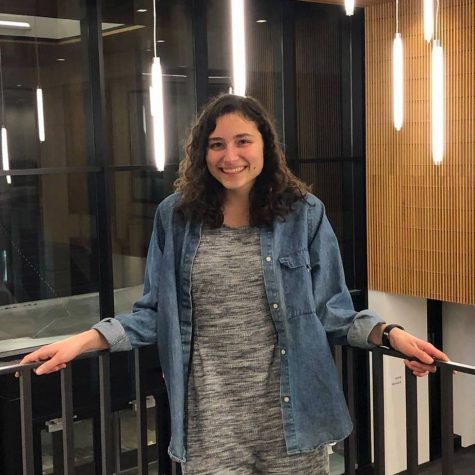Students rush home from study away sites as coronavirus spreads
March 26, 2020
In light of the closing borders and travel restrictions spurred by the spread of the coronavirus, the Center for Study Away (CSA) is recommending that all students studying away return home, regardless of where they are. This blanket recommendation, which was sent to all students studying away in an email on March 14, comes after several weeks of program closures in countries most affected by the virus.
The email urged students to seriously consider what it might mean for them to be stuck at their study away sites.
“If I get sick while at my program site, am I prepared for receiving medical care locally?”, the email told students to ask themselves. “Am I comfortable with the possibility that I might not be able to leave my program site should the situation change in some way later?”
Students choosing to stay are expected to sign a form assuming responsibility for their own health and safety.
The United States has increasingly restricted international travel, closing borders with Canada and Mexico and issuing a travel advisory on Thursday, March 19, warning U.S. citizens to come home immediately or prepare to remain abroad indefinitely. Other countries, too, have restricted movement across their borders.
“The vast majority of students have returned to their homes or are in the process of returning,” CSA director Kevin Morrison wrote in an email to The Mac Weekly. “There is a small number of students who have chosen to remain at their program site. We will continue to remain in contact with them for the remainder of the semester.”
Although Macalester is leaving that decision up to students, several programs have closed. Mikayla Smith ’21 was on an IES program at Nanzan University in Nagoya, Japan, and returned on March 7 after the program told students to go home.
In light of the rapidly changing situation, study abroad programs around the world have scrambled to make decisions and get students home. When the coronavirus began spreading in Japan, Smith said her program first told students that they would continue going to classes as normal.
“Four or five days after that, they called us into an auditorium and told us that we were going home,” Smith said. “It was pretty sudden.”
Smith wasn’t entirely surprised by the early end to her program — she had been tracking the news since the outbreak started in Wuhan, China and expected a response once cases were confirmed on a Diamond Princess cruise ship in Japan in early February. But, she said, not everyone around her took the threat as seriously. When she told her host family that she was being sent home, they didn’t believe her at first.
“I felt like I was going crazy there,” Smith said. “I was like, look, we have at least two weeks before it hits to a really bad level where I think they’re going to send us back home, and nobody believed me.”
Since returning home, Smith has been doing her classwork online during her two-week quarantine. Most students leaving their abroad sites can still earn credit for their classes, according to the CSA’s March 14 email.
Evan Unruh-Friesen ’21 was spending his semester abroad in New Zealand in a direct enrollment program with the University of Otago. Although he wasn’t required to leave, he decided to start his trip home on Wednesday after several days of consideration.
“In terms of staying my decision changes almost daily,” Unruh-Friesen wrote in a message to The Mac Weekly.. “If you would have asked me [last] Monday I would’ve been dead set with staying.”
But Unruh-Friesen had several concerns about staying — the University of Otago continued holding in-person classes after most programs had closed, and New Zealand is starting to take isolation measures that could limit his ability to move about or come home. By Wednesday March 25, he was on his way back to the U.S.
“It seemed better to be stuck at home,” Unruh-Friesen wrote.
New Zealand began a month-long lockdown on Wednesday, asking citizens to stay indoors unless going out is necessary. As of the start of lockdown, the country had 283 confirmed cases of the virus.
Some students, though, have chosen to take advantage of the CSA’s option for remaining abroad. Cade Fink ’21, who is also in a direct enrollment program at the University of Otago, plans to stay.
“I’d rather get stuck in New Zealand where it probably won’t get to the level of mass panic or anything like that as the States,” Fink wrote in a message to The Mac Weekly. “I trust [New Zealand] more than I do the US to flatten the curve and get this over with quickly and humanely.”
Out of the six Macalester students enrolled at the University of Otago this semester, Fink is the only one planning on staying.
Morrison wrote in his email that the CSA would keep in touch with students like Fink who have chosen to remain abroad. Those who need to suddenly return have raised questions of whether Macalester can help with the costs of booking last-minute flights.
“While Macalester is not able to reimburse ticket purchases, we are working with the Office of Financial Aid to see if financial aid awards can be adjusted to account for this unexpected expense,” Morrison wrote in an email to all students studying away on March 23.
Duane Nguyen ’21 asked the CSA for financial aid for his almost $2,000 tickets to return to the U.S. from the University of Glasgow in Scotland two weeks ago. Though he said Morrison forwarded his receipt for the ticket to the financial aid office, he hadn’t heard any more information about it as of Tuesday night.
Nguyen helped draft an MCSG resolution for a student relief fund, which the Legislative Body passed at its Tuesday night meeting.
The CSA is still working on creating a system for financial aid. In the March 23 email, CSA staff told students to watch for more information in the coming days.
For now, as more and more countries and U.S. states lock down under stay-at-home orders, the option for students to stay at host sites remains open.
“I don’t foresee us changing that stance, though one thing I’ve learned in the past few weeks, is that anything is possible, so I won’t rule anything out,” Morrison wrote.














